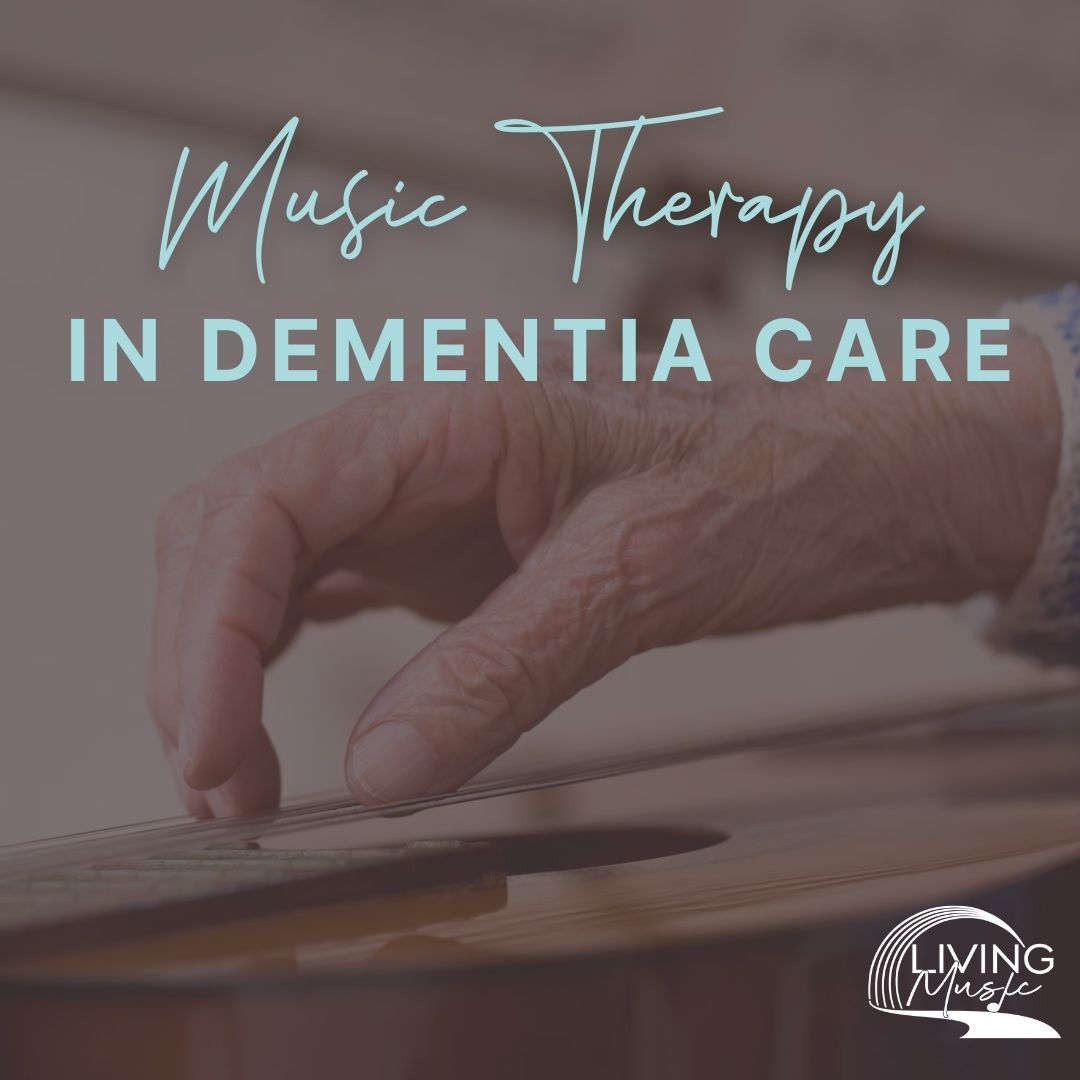

Music Therapy in Dementia Care
I am continuing my posts for #musictherapybloggerchallenge, and I would love to share this beautifully written article with you! It describes a music therapy care plan with a man with Alzheimer’s Disease who is suffering from social isolation and agitation issues.
(By the way, if you’re interested in my very first blog posts, check them out here!)
The article I’m sharing with you today is titled: “Reaching the Socially Isolated Person with Alzheimer’s Disease Through Group Music Therapy-A Case Report“. This article discusses several things that I find very important in my work with this population. We know that Alzheimer’s and other dementia disorders have significant degenerative effects on the cognitive, emotional, and social well-being of a person. The functional decline these people face poses unique challenges and impairments on their quality of life and social interaction. You may know of a loved one or resident that hardly ever leaves his/her room; and when he/she does, may become agitated or upset quickly. There are few things that may calm him/her down, and ultimately staying isolated in a room is what typically happens.
As health care professionals, we strive to provide quality client-centered care. Treating the “whole” person is recognized as a best-practice standard of care. This type of care is even more important for a person with dementia, as the disease can change the person’s personality. The person, however, does not change-their memories, experiences, and relationships stay the same–and it is important to continue these as normal as possible, for as long as possible.
Music therapy is a client-centered treatment that elicits social connection and behaviors almost instantly. When one hears a song they enjoy (stay tuned for future posts on the importance of music preference!), an emotional connection begins. This connection may be with the music itself, the person singing it, or another person/place/thing in the room. The unique ways a music therapist uses music allows for these music connections to foster and reinforce social interaction, increase appropriate social behaviors, and reduce isolation.
The story of “John” in this article discusses how music therapy was the only therapy that John could and would manage. He was originally almost “written off” to do anything, always refusing activities, however the music therapist tried to make a connection despite this. After attending one music therapy group session, John continued to attend for several years, this being the only thing he tolerated at his residence. Due to his attendance, John showed increased social interaction during and after music therapy sessions, increased quality of life, increased motivation, and minimized feelings of agitation.
Over the years as a music therapist, I have had several nurses, administrators, activity directors, nurse’s aides, social workers, etc. be in awe when a resident/loved one attends music therapy and nothing else. Some get so excited that they have FINALLY found something to help this person they care for so much! I have enjoyed reaching these people through music. It is the relationship we create through specific music interventions that keeps them coming back. I find it meaningful to BE with people IN music. Music connects us on a level that cannot be touched with words alone. I feel truly blessed each day to have the capability to reach people with music–to help them LIVE music!

If you LOVE research like me, feel free to read the full article here.
Article citation: ABAD, Vicky . Reaching the Socially Isolated Person with Alzheimer’s Disease Through Group Music Therapy – A Case Report. Voices: A World Forum for Music Therapy, [S.l.], v. 2, n. 3, nov. 2002. ISSN 1504-1611. Available at: <https://voices.no/index.php/voices/article/view/1586/1345>. Date accessed: 13 Jun. 2015. doi:10.15845/voices.v2i3.101.
Interested in music therapy services? Contact me for a free consultation
If you love getting more info on music therapy, subscribe to my newsletter!
